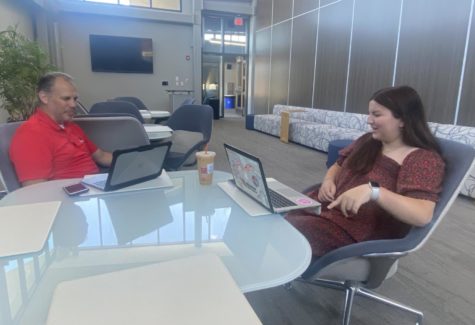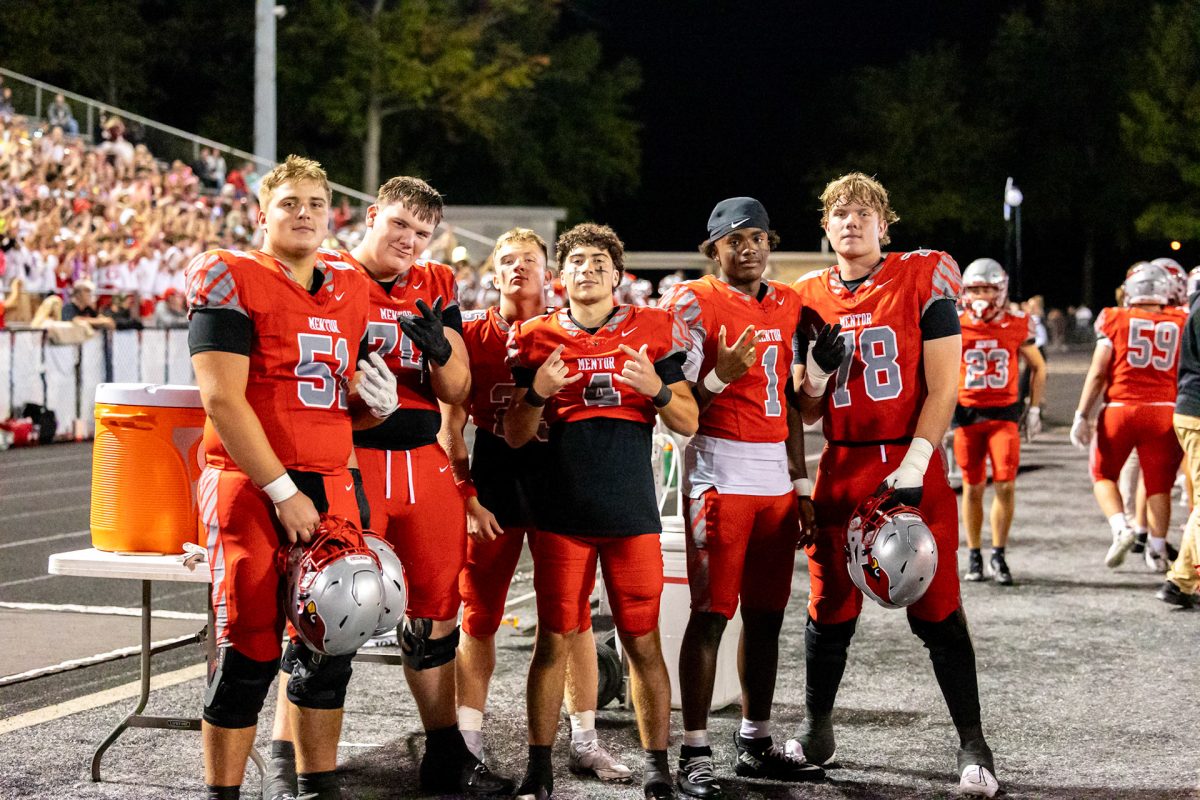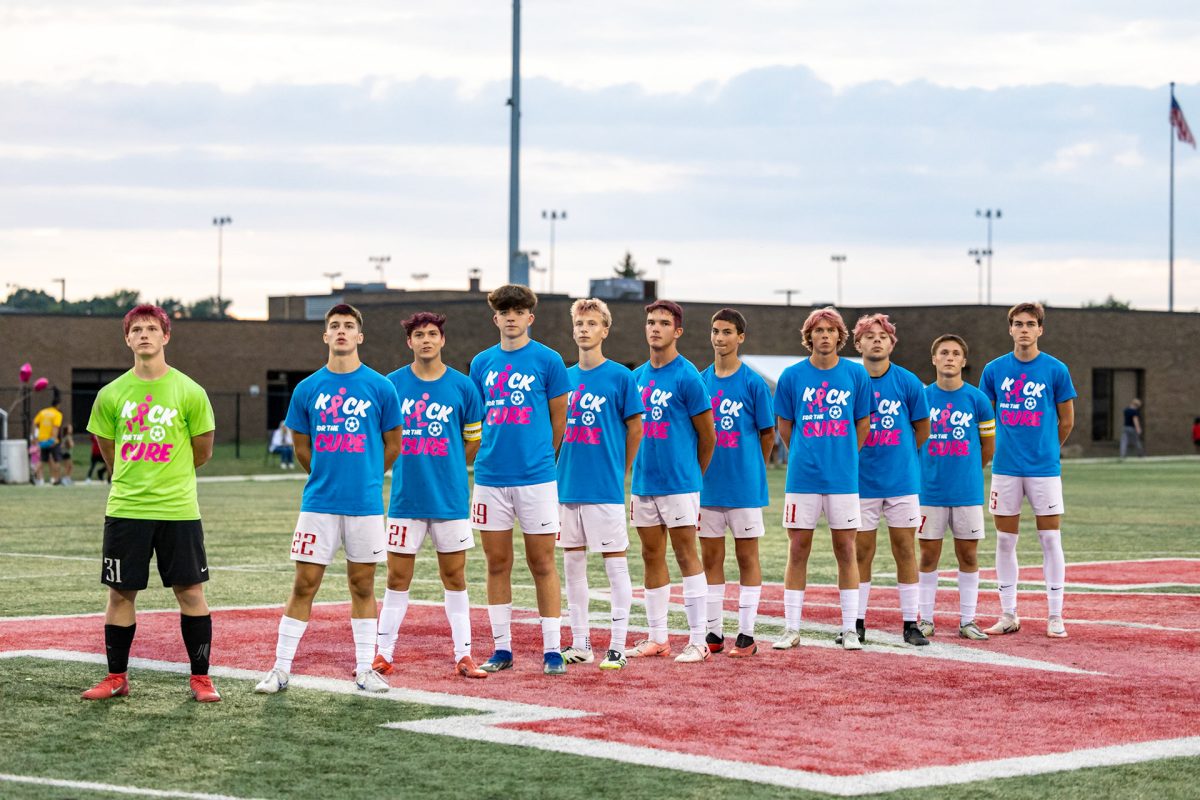National Debate Plays Out in Mentor
What you need to know about the March board meeting and how the board has responded
March 27, 2023
For the second time in six months, the Mentor Local Schools have found themselves profiled nationally as a result of debates at the school board level.
Fox News reported on proposed pronoun policies in September that eventually were tabled, and on March 18 – the first day 0f the Mentor Schools spring break – The Washington Post shared a lengthy profile of the district and the debates in the community that are part of a nationwide trend. The Post report was also shared by the online state group Honesty for Ohio Education among others, and the board meeting itself was also independently covered by the state LGBTQI+-friendly publication Buckeye Flame.
The March 14 monthly meeting of the Mentor School Board ran four-plus hours and was at the center of the Post story. In addition to routine business, the debate largely revolved around a single proposed resolution dealing with federal Title IX law and parent rights.
The Mentor resolution was proposed by Mentor’s School Board President Tom Tuttle and supported by fellow board member Annie Payne, but failed in a 3-2 vote. Payne and Tuttle supported the resolution, while Ginnie Jeschelnig, Maggie Cook and Mary Bryner opposed it.
March Board Meeting

Numerous students, parents, and community members packed into Paradigm to share their opinions and ultimately hear the outcome of the board’s vote on this resolution. The March 14 meeting began with a few clarifications from Mr. Craig Heath, Mentor’s Superintendent.
Heath first addressed the issue of pronoun surveys in our school, restating the policy that no students will be surveyed in elementary school (K-5). Furthermore, if a written survey was to be given at the middle or high school level, parents would be notified a week ahead of time and would be given the chance to opt out. In addition, a response on the survey must include the option to not respond. Mr. Heath also took the opportunity to dispel some misconceptions that have been circulating regarding transgender student use of bathrooms within our schools. He explained that this was a matter of following state and federal guidelines considering that the Sixth Circuit Court of Appeals has already made a ruling on this topic. This means that the district is working with students on a case-by-case basis in order to maintain the rights of all students and to meet needs as they arise.
Case law is unclear on this issue, as numerous cases have reaffirmed the ideas presented from both sides at the meeting. One case, Adams v. St. Johns County (FL), found that schools have the right to separate restrooms based on biological sex. In a separate ruling from 2016, Dodds v. U.S. Dept. of Education, found that an eleven-year-old transgender female was allowed to use the girls’ restroom, and even cited her mental health as one of the factors in this conclusion. (Mr. Heath’s entire comments and the entire meeting are viewable here: March Board Meeting)
Following Mr. Heath’s comments, over forty parents, students, and community members shared their opinions and recommendations to the board. After the first few speeches generated copious amounts of applause, President Tuttle told the audience to “keep it to themselves.” Arguments opposing the resolution cited the fact that it did not have legal bearing and that the safety of vulnerable LGBTQI+ students should be the number one priority. Arguments in favor cited the safety of girls at the hands of biological male students as well as the fairness of sports. Some even cited Mentor’s public indecency ordinance as a reason to oppose transgender students using the restroom of the gender they identify with.
Understanding Title IX
Title IX of the Education Amendments of 1972 is a federal civil rights law. Title IX prohibits discrimination on the basis of sex for any federally funded educational program or activity; this includes school-day activities as well as sports. Title IX was passed as part of the Education Amendments of 1972, and is actively being enforced by the Department of Education’s Office for Civil Rights.
Even though Title IX was passed in order to protect the rights and liberties of women primarily, in recent years, several presidents have attempted to interpret it to include LGBTQI+ people as well. This includes former president, Barack Obama, who actually did implement protections for transgender youth to be permitted to use facilities such as the bathroom that fits their gender identity. Former president Donald Trump, actually revoked these guarantees from Title IX, removing these safeguards for transgender youth.
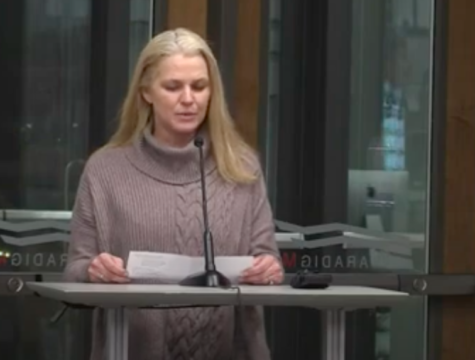
President Biden proposed in June 2022 on the 50th anniversary of the federal Title IX law that it should be interpreted to extend protections on account of “sex” to the LGBTQI+ community by including orientation and gender identity in its enforcement, similar to the Obama Administration. President Biden’s proposal is not being enforced as it is being challenged in the courts.
In the meantime, this past fall Ohio State Board of Education member Brandon Shea introduced a resolution urging the State Board to oppose the Biden administration’s position and urge all state districts to do the same. This resolution eventually passed in December 2022 after months of debate as an amended resolution from board member Mike Toal entitled Resolution to Oppose the Proposed Changes to Title IX and to Affirm Parental Rights and Local Control of Ohio K-12 Education.
In this amended version of the Ohio State Board of Education’s resolution, the resolution backed the right of parents and called upon the “General Assembly to resist federal executive branch attempts to undermine the original intent of Title IX.” A copy was sent to each school district in the state after its passage.
This State Board of Education action led multiple districts across the state to respond with resolutions of their own, some opposing the state’s action. Resolutions supporting the state action similar to the proposed Mentor have passed recently in Riverside and Cardinal School Districts. You can read Mentor’s proposed resolution here: Resolution-RE-Support-State-BOE-Resolution.
Mentor Responds
Following the board meeting, Cardinal Nation reached out to all five board members and Superintendent Heath for comments on both the March meeting, the defeat of the resolution, and The Washington Post article. Below are the responses we received:
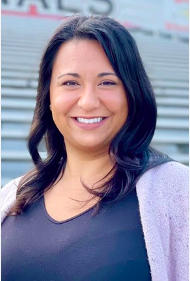
Mrs. Annie Payne, board member:
As was mentioned in our meeting from Mr.Heath, there are court cases that differ with one another on this issue all across the nation, which is why this is such a tough subject for boards to approach.
One thing I think that everyone agrees on, is that people believe what they’re fighting for is what is best for children. I think it’s important to hear all perspectives to develop empathy for those who you may not agree with. Although I stand firm on the belief that biological girls and biological boys restrooms and locker rooms should not be open to the opposite sex, I understand that some of our transgender students don’t feel comfortable in the bathroom of their biological sex. However, I believe we are safely accommodating them with our gender neutral single stall bathrooms that are available at all our schools. Due to the recent social media video involving an altercation in our high school bathroom, I think allowing biological males in females restrooms and visa versa is a safety issue for both parties…
We have communication plans in place with hopes that we can involve the parents in these discussions. However, that communication plan is based on the child and if they are willing to involve the parents in their decision to be transgender. If they are, we can include the parents immediately in the communication plan. If they are not, the parents may never be notified. With high rates of depression, anxiety and suicide among transgender youth, I believe strongly that parents should be notified immediately. This would also help reduce the chance of any student going into the opposite bathroom of their biological sex for inappropriate reasons since the children who are not truly transgender would be held accountable to their parents and correct school disciplinary action could ensue…Riverside Local Schools and Cardinal Local Schools from our area both passed the resolution that was proposed and ultimately did not pass at last Tuesday’s meeting…
I was surprised that the article was written showing both “sides” of the issue. I think it depicted points on both “sides” that are dividing our community and our students. Our community is torn on many issues relating to the schools… Some may see our political divide in our board as a negative, but truly if we can all work together it would be a great positive. Our community is not uniform in their opinions on school issues, and our board I think reflects that. I would never want a board to be completely one sided because that surely would not reflect the perspectives of all those in our community…
The article also missed one thing. It didn’t mention those who are not on either “side”. I believe there are a lot of parents and community members who probably fall into a middle category. I know many people who bring up issues outside of those brought by both groups such as class sizes, student involvement in policies, busing issues etc…It also failed to mention all the great things we have going on in our schools. We can still be proud of the successes we have and the robust programs we offer, despite both “sides” disagreements.
Mrs. Maggie Cook, board member:

It is important to me to hear from diverse perspectives and I respect and value the process of public participation. I am disappointed that this meeting became so politically charged. The resolution we were voting on had points I support, such as parental rights and Title IX. It also specifically opposes the proposed regulatory changes to Title IX released by the U.S. Department of Education. These changes include additional protections against sexual harassment, sexual discrimination, legal protections against pregnant women, protections for parents to advocate on behalf of their children, and it expands the definition of sexual harassment to provide greater protections for students in schools. It also protects LGBTQI+ students from discrimination based on sexual orientation, gender identity and sex characteristics.
These regulatory changes are protections I support. I believe that all students are entitled to an educational environment free from discrimination. Passing this resolution would have declared that our district was opposed to these important protections against sexual harassment and discrimination. I am encouraged that this is not the decision that was made.
Many people expressed concerns with transgender bathroom use. This resolution did not address bathroom or locker room use. This decision has been determined by the 6th Circuit Court of Appeals case, Dodd v. U.S. Department of Education. The district has been advised by legal counsel that we risk violating civil rights and losing federal funding (we received $21 million from 2020-2022 in federal funding) if we were to discriminate against specific groups of students. I believe our students deserve an educational environment free of discrimination and I believe it is possible to achieve this and maintain privacy, respect, and dignity of all students if we work together.
We are already exploring costs and options to renovate bathrooms to improve privacy. I am optimistic that we are moving in the right direction. Our community values public schools and their input will be an asset to help us achieve solutions as a community.
The Washington Post article illustrated the impact of politics on education. It is an important topic that deserves a voice. Unfortunately, it is the students and staff that get caught in the crosshairs of politics. Resources that should be devoted to educating students are diluted with political distractions. I’m sorry that Mentor Schools is an example of this division; yet we are merely representatives of the attacks on hundreds of public schools across the nation. For me, this article reaffirms the importance of public schools in a community and the need to focus on the mission of schools- education.
Mrs. Ginnie Jeschelnig, board member:
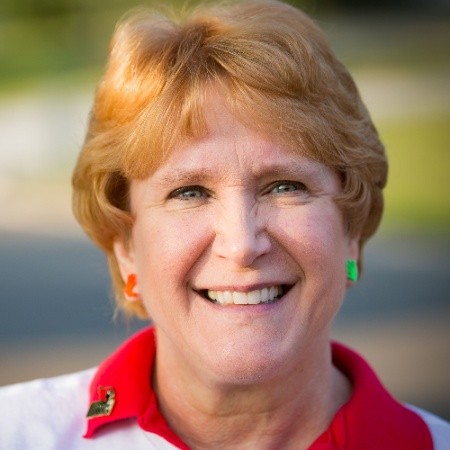
Like many complex issues, various solutions often cancel out other proposed options. Some of those are expressed as demands and would be illegal based on the law as defined by the 6th District Court of Appeals
Looking back over the past two weeks, I tallied the emails I received before and after the meeting, as well as the number of speakers for and against the resolution on March 14th. There was slightly more correspondence against the resolution before the meeting, and a little more than half of the March 14th speakers were against it as well. A significantly larger number of emails against the resolution came to me following that four-hour meeting. In all, 48 households expressed their opinions asking us to oppose the resolution, and 36 households favored it.
The volume of voices weighing in on this matter is a strong indicator that we need to find ways to strengthen our collaborative decision-making. In addition, while I am interested in our community’s points of view across the spectrum, the opinions of district residents with children currently enrolled in our schools should resonate more strongly in crafting an action plan. Their children are directly impacted by all policies and practices. At this point, a first priority must be to find solutions to promote safety for all. In most statements, concerns that were raised were not paired with any concrete suggestions that would be feasible given the space and costs required.
I think students will be an important source of input going forward. In my 10 years serving on the Mentor Board of Education, no issue has ignited as much attention from our community.
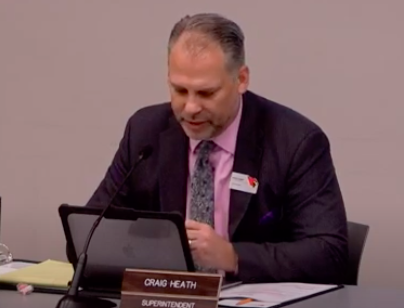
Mr. Heath, superintendent:
I do not have a personal opinion on the resolution itself. As superintendent, I have to follow current education law and court cases that relate to public school districts in our state. The resolution revolves around Title IX in regards to its application to transgender students. In this situation we fall under the 2016 6th Circuit Court of Appeals ruling out of Cincinnati, Ohio that affirmed the rights of transgender students in our state. Until there is a different set of guidelines coming from President Biden, a new federal law from the US Congress, or an appeal heard and ruled on by the US Supreme Court, we have to follow the 6th Circuit Court ruling. There are obviously strong opinions in our community from both sides of the issue. Those opinions were expressed in the public participation portions of the latest board meeting and in numerous emails received by me and our Board of Education Members in the days leading up to, and immediately following the meeting. Everyone is entitled to their opinion…
I met with the reporter from the Washington Post for over an hour a couple of weeks ago. I shared with her that I view the political diversity of our community and our Board of Education Members as one of our greatest strengths. It allows us to listen to every perspective on a topic before making decisions that impact our students. I want every decision we make and every resource that we use to fall right down the center of the political spectrum. While there is a wide divide in political philosophies in the community, there is also a tremendous amount of common ground in the middle that we can all agree to. If everyone takes a step or two toward the middle, we will be able to accomplish some pretty great things in our district.
Implications
Mr. Heath emphasized the importance of keeping this topic open, along with the lines of communication between students, teachers, and parents. According to Mr. Heath, the high school was actively communicating with roughly thirty transgender students and their families.
Additional Resources:


